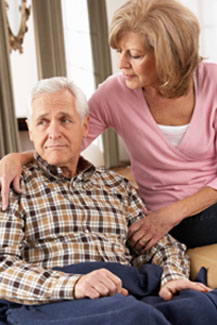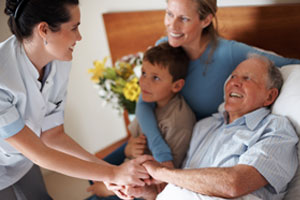Introduction to Observing General Health

When you care for someone who is either ill, injured, disabled or has recently had surgery, it is very important to watch them carefully. You become the eyes and ears for the person. When you observe a person’s general health you learn to notice the whole person, including their general appearance and their behavior.
Always pay attention to the person you care for. Whenever you are with the person, watch what they are doing and how they move about and interact. Get to know their normal body features and characteristics. What are your first thoughts as you observe the person? For example:
- Does the person seem alert when they look at you and respond to what you have said to them?
- Does the person look ill, rising more slowly from a chair or walking with shoulders more slumped than usual?
- Does the person lay perfectly still in bed or turn often and hold a part of their body?
- When the person grasps your hand does it feel wet and clammy?
- Has their eating or sleeping habits changed?
- Are they less interested in activities they have enjoyed in the past?
Recognize Change. It is important for you to notice when the person you care for develops problems or when he or she seems different than the way they were. For example, changes in a person’s normal sleep pattern and eating habits and having a fall are often signs of a developing problem. Some changes that you notice will need to be watched over time. Other changes will require you to call the person’s doctor.
This lesson will prepare you to better care for a person in the home by learning how and what to observe.
Here is Renee's Story:

I have been caring for my dad now for about three years. He has advanced Parkinson’s disease and requires a lot of care. I am glad we are able to keep him at home but I do not know how long that might be. If there is one thing I have learned in caring for my dad, it is to always watch and stay on top of what he is doing. Over these last 3 years, I have become a better observer. I remember when Dad started to have trouble swallowing certain foods. It started rather suddenly. I noticed a change in the way he moved food in his mouth and told the doctor about it. As a result, we got a dietitian to help us learn how to have the right foods for Dad to swallow. One day at a time, that’s how we live life. I am always keeping an eye on him to look for any new changes.